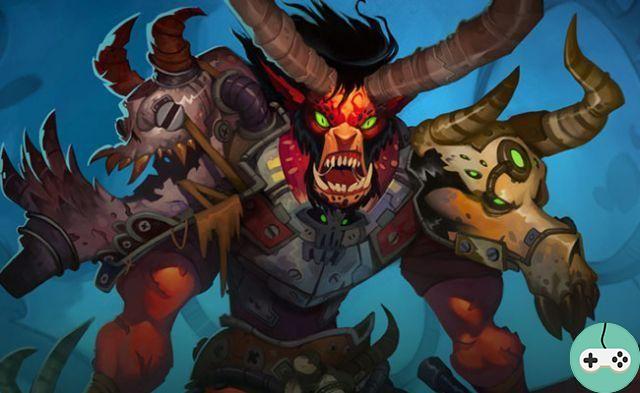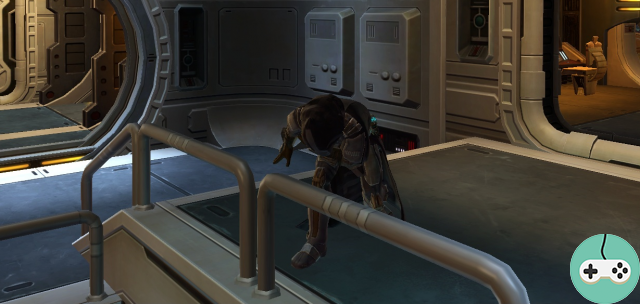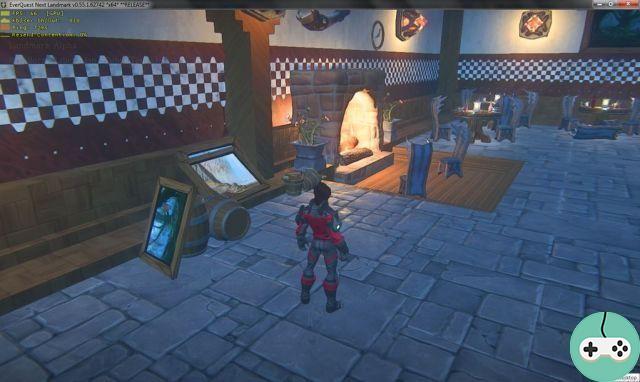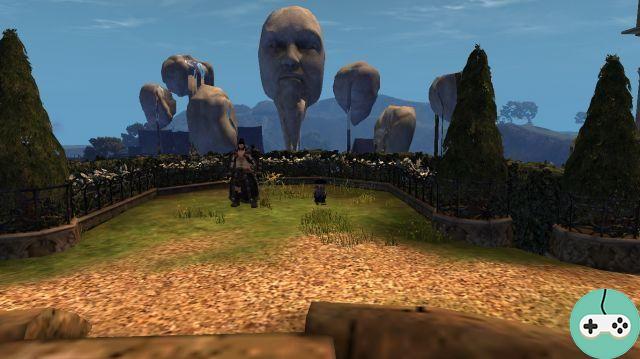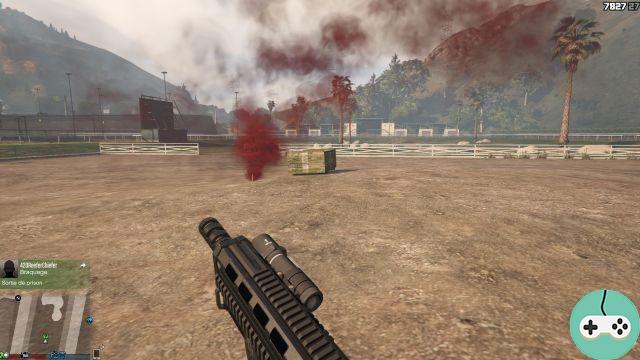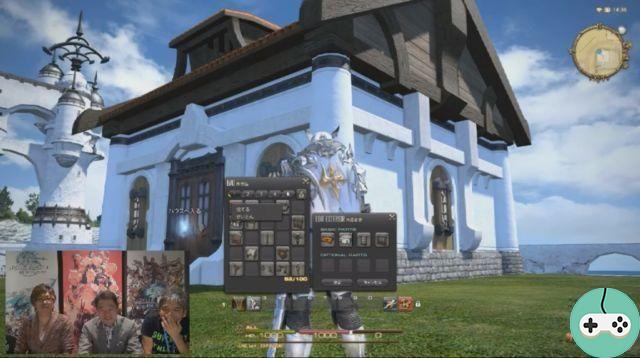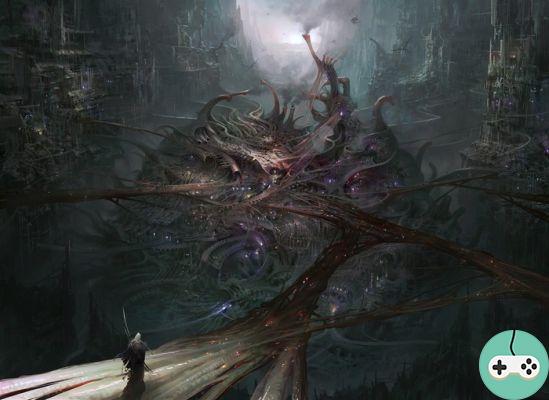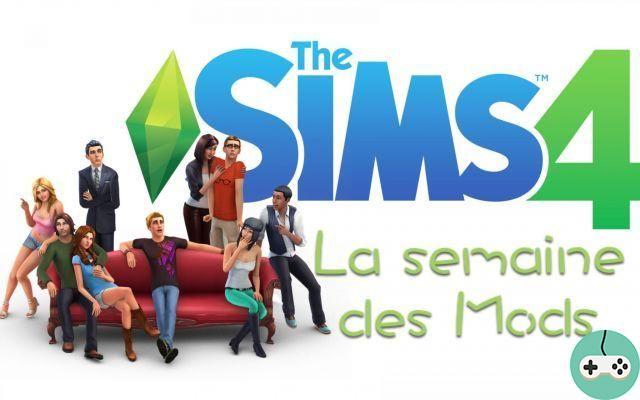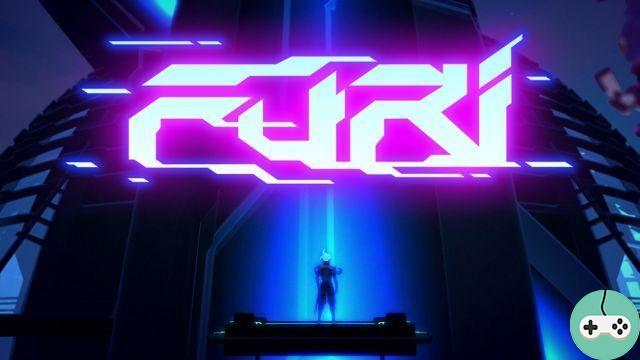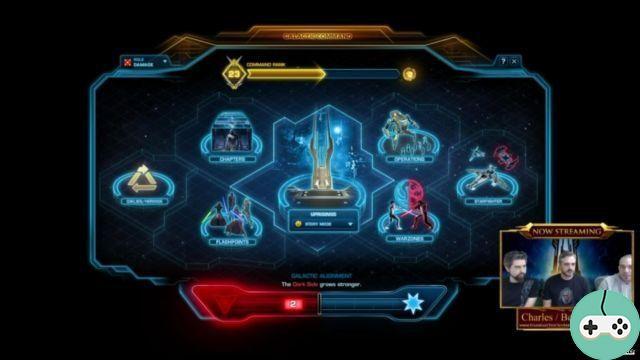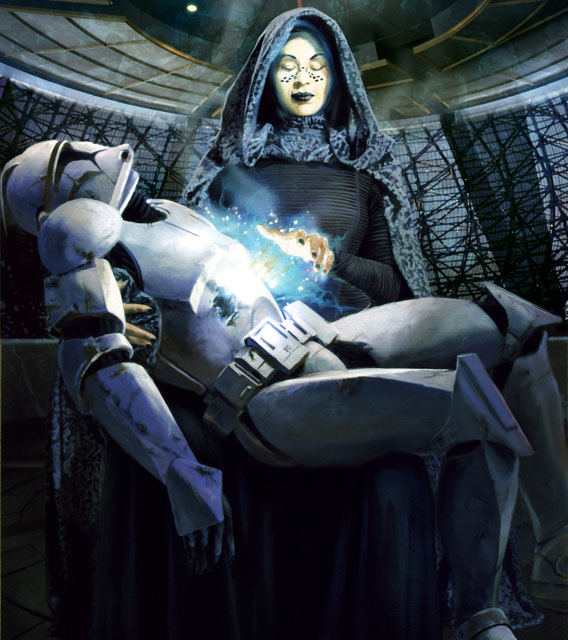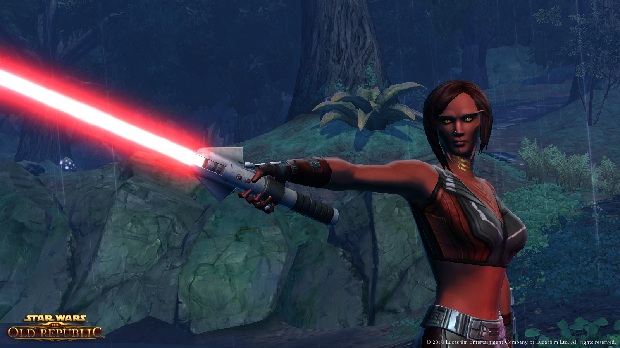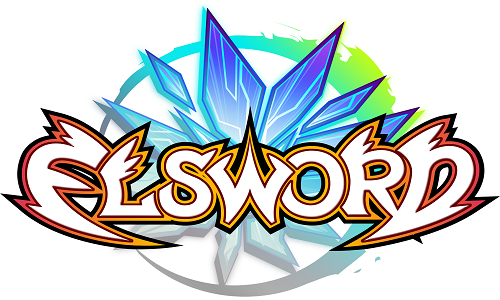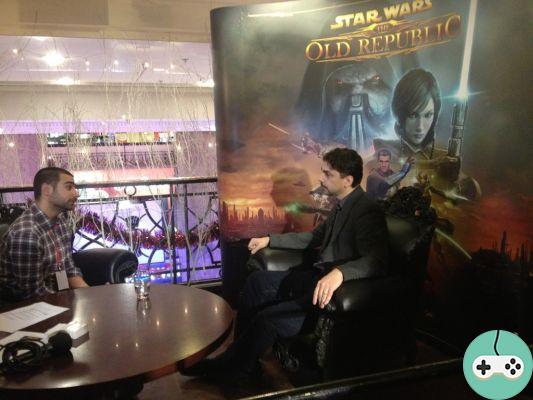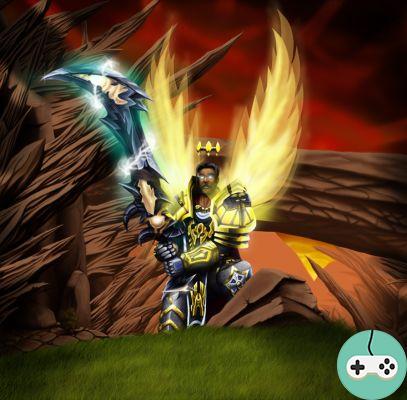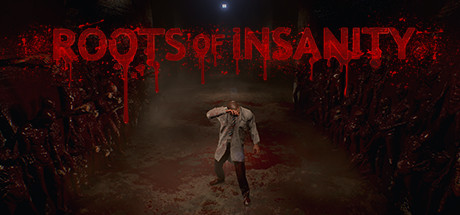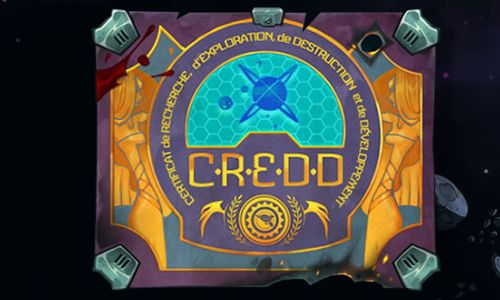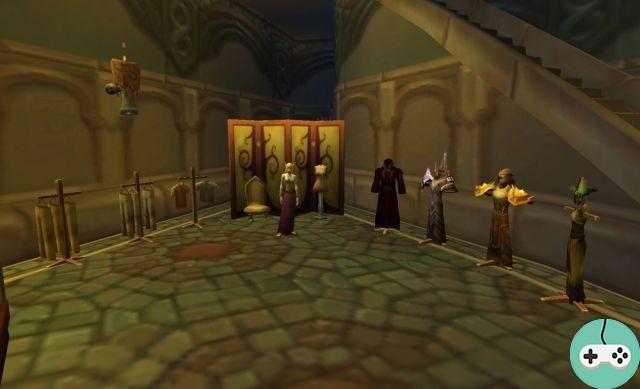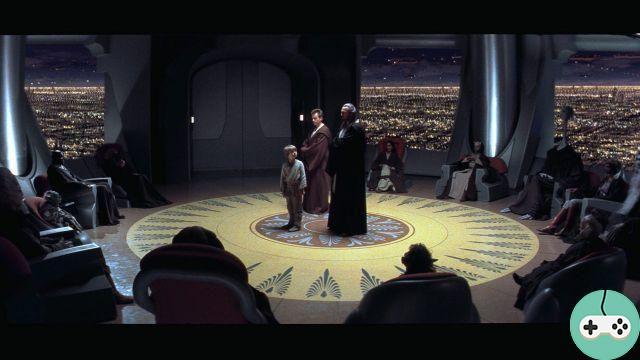
Are we talking about Jedi? Those who start out as simple novices? Before becoming a Padawan and passing the tests to acquire the title of Knight? Or those who fail and find themselves reassigned elsewhere? However, there are a few missing members, and especially the most famous, so much so that they have acquired the name that is usually used when addressing them: the Jedi masters.

Once a Jedi has become a Knight, he travels the galaxy through his quests, his missions, his instinct; depending on what the Jedi Council or the Force directly asks them to do. But some are incredibly powerful in the Force. Others have accomplished great things in the name of the Republic, the Jedi Order, or the Force. There are many reasons for this, but among the Jedi some are much more than knights: they are jedi masters. It should be understood that this is not a demandable title, but recognition on the part of the Council and the whole Order. Likewise, this is not the end of the promoted Jedi's journey, as he continues to receive orders.
What changes - besides the greater power and symbolism he possesses - for a master is the opening of certain doors. Indeed, I have told you about the paths among the paths of the knights, and among some - the instructors, in particular - there are some which seem only accessible to Jedi masters. I say "seem", because the Order is perfectly capable of recognizing the talent of its members without conferring the title, but allowing what seems most important: the role *. Likewise, the members of the Jedi Council are generally all Masters, as either one is granted the title or office on the basis of similar requirements (i.e., proving oneself in Strength, wisdom , or justice).
* This is pretty much what happens for Anakin in Episode III: he accesses the Jedi Council when he is not a master. The thing being that it was necessary for him to be present - for relations with the Supreme Chancellor - but that the exploits he was able to demonstrate did not raise him high enough to deserve the title - although he did. required.
Becoming a Jedi Master does not happen overnight, but there are many details that allow progress to be made towards this honor: making a Knight pass his Padawan, rendering exceptional services - watch the Jedi Knight class quest in TOR - or even skipping a more version. arduous Jedi Trials (something that is rarely done, but has great value if successful, although only conceivable when the classic Jedi Trials are structured (so, not really during the TOR period). in any case, whoever obtains this title is deserving, which makes that the lesser Jedi master is of a power hardly attainable. Proof of this is that they are less numerous than the initiates - official thing in the post period -Ruusan, but perfectly admissible also for TOR, simply that there is a difference of scales (much more novices also, for example).
Another extremely famous title is that of Grand Jedi Master, also called Master of the Order, held by both Satele Shan and Master Yoda (to quote the most famous of all). But they were not the only ones, especially since they were sometimes several to have the title at the same time. Impossible since Ruusan, and apparently also for TOR and KOTOR (although we do not see the real Council on Coruscant for KOTOR). It is only conferred unanimously by the High Council, and the guarantor of this title sits on this same council. Thus, having a challenged Grandmaster is absolutely impossible - or so by proud / foolish Jedi who have no say in the matter - since everyone must be in complete agreement on the handover. Master among Masters, it is evident to all that the person holding him is overpowered in the Force, and has been able to accomplish great things for the Jedi Order.

Ah ... the advice, the advice, the Jedi advice ... everyone knows it, sees what it is, we love it, we hate it and throws it countless faults and mistakes. .. But we forget an important thing. There is no Jedi advice, but four. Yes, yes, four. And I will have the pleasure of enlightening your lanterns on their composition:
First there is the Council of First Knowledge, which, as its name suggests, is responsible for the quest for knowledge. He keeps the Jedi archives, and as such, represents one of the authorities of the EduCorporate, and works hand in hand with them. By their status, they are also the first references to which Initiates turn who wish for more clarification.
Le Reassignment Council is the one who directs and manages the Jedi Service Corps. It supports the careers of all Jedi who failed to become Padawan or knight, and therefore serves as the overall benchmark for the four Corps. However, other more specialized instances also walk on their borders, depending on the problems in question (see Council of the First Knowledge). He appears to be the only Council to accept reassigned Jedi into its ranks, although that must be extremely rare - and somehow would mean that the individual in question ultimately deserved to be Jedi Knight and then Master.
Le Reconciliation Council mainly brings together Jedi Consulars, and more particularly Jedi Ambassadors; its task being to settle conflicts, negotiate with systems, and find peaceful solutions, both outside and within the borders of the Republic. Despite their strong disposition and empowered to do so - the Force helping - the Council for Reconciliation does not supplant the Senate for all that: it is at its disposal, and they are often asked for their opinion, given the esteem of the Jedi in the eyes. of the Republic, finally in general. And just because TOR is in the midst of war doesn't mean the Council is useless - far from it. You can be sure that its members discuss conflicting situations in Alderaan, Balmorra, Corellia, and so on; although the game does not illustrate it.
Le High Council, shortened to the Jedi Council, or even the Council, is the one referred to 99% of the time. He heads the Order and represents the supreme authority of the Jedi. He is the one that we see in almost all the references that mention him. When certain characters are marked as part of the Council, that is by default. It acts a bit like an American court, which means that it is much more attached to the laws, and to sort out details as soon as a question arises (and suddenly, are highly solicited, as can be. see it in references while speaking). Regarding the members, I gave you a small list - probably incomplete - for the period of TOR, but in tag, because it contains Spoilers concerning the Jedi classes and the imperial classes via quests of planets (in short, a little spoilers everywhere ...). Normally there are 12 members - the 12 wisest and most powerful in the Order - but that doesn't preclude other Jedi from participating from time to time, especially since this restriction is evident from Ruusan, but not necessarily imposed before.
TOR High Council Members
The members of the board are / were the following (not all members at the same time):- Satele Shan, Grandmaster shortly after the Jedi Temple moved to Tython.
- Zym, a great master before her, died shortly after the Treaty of Coruscant (like many others).
- Gnost-Dural
- Shol bestros
- Giffis Fane
- Wen Aleusis
- nikil Nobil
- Cendral Gend
- Orgus Din (dies at the end of chapter 1)
- Bela Kiwiks (dies / loses seat so alive?)
- Jaric Kaedan (died before chapter 4)
- Syo Bakarn (leaves his seat at the end of Chapter 3)
- Oteg (dies / loses seat while alive?)
- Oric Traless (dies in combat on Tython)
(A very big thank you to Chaotin who gave me the list in detail, taking into account the possible modifications with the scenarios of the game).
Although the High Council supplants the others by its authority, the tower which houses it is not higher than the others: the 4 towers sit on either side of the Arrow of Tranquility, in the center, which has in particular of a meditation room where are sent the Padawans having passed their tests, and waiting to pass their ceremony. Alas, for Tython, we only see one boardroom (nothing prevents us from assuming that they share it: they don't need to be there 24 hours a day), and the five temple spiers are evidently absent.

If on the one hand there are those who are more than just Jedi, there are those who are less so. What I mean by that are primarily those not recruited by the Order, who cause disturbances by the use of Force. Having an affinity with the Force, outside of an Order (Jedi or Sith, but other groups exist as well) is more often a real curse for the adept, more than anything else. Pursued, hunted down, persecuted, these individuals are accused of a witchcraft that surpasses them, when they themselves do not act to cause harm to those around them. Once such a stage is reached, returning to the light is particularly arduous (much to the happiness of the Sith), and this is why Jedi recruiting is so important. Often times, the situation causes the Jedi to be called kidnappers, family breakers, and even brainwashing. But Republic law allows them to take any child who might become Jedi - failing to do so is so dangerous, especially in times of conflict with the Sith, that the Republic prefers its "child thefts" over future massacres.
So any Jedi can somehow find a Force-sensitive individual. There are almost as many ways to do this and understand it as there are individuals involved, but the Order takes a number of precautions to check - think Qui-Gon in Episode I, which quantifies the midi-chloriens - just not to be fooled by the slightest impulse of subjectivity. Some Jedi, because they often go on trips, meet a lot of people, and have made a specialty in detecting future members, they also bear the title of Jedi Recruiter. Not sure that it supplants their path (they are often sentries, but not exclusively) nor their own path, on the other hand.
While recruiting is a priority for any Jedi (even a Padawan can sense somebody else's Force connection, and thus begin to verify this possibility with their master), take a Padawan and teach them what the one has learned is not compulsory. However, a large majority of masters do it, and several times, one after the other. Jedi wishing to do so inquire of the instructors about promising Initiates, or else attend the Apprentice Tournament which takes place each year. Jedi seeking to teach must feel a connection by Force, to the Novice in question, and that is why he will necessarily be like him. But not too much, because we too often forget that it is a two-way learning process: not only does it benefit from updated teaching (in the event that certain knowledge has become obsolete in the meantime), but its point of particular view can benefit you as well. Unfortunately, over-protection or lack of consideration sometimes happens, with both ultimately being bad for both Jedi. Because this teaching is obviously complex, the Jedi Order greatly prefers that a Jedi refuses to teach, rather than a Jedi who teaches poorly. Thus, refusals to take a Padawan - temporarily or even ultimately never - are therefore perfectly accepted, except perhaps in really exceptional cases.

We talk about the Jedi and the Sith, but too often we forget that they are not the only organized Force users. Among all the organizations that exist, the Jedi Order tries to keep good contact with them, although this is not necessarily the case. Here is a little preview :
- The Makutai are extremely powerful martial artists - perhaps the most powerful in the entire galaxy, in this area - who use the Force to support their bodies, stamina, zeal, and sturdiness.
- The Jedi Greens ou Jedi corellien are an organization of Gray Jedi who have in common with the inhabitants of their home world the fact of doing like no one else (especially at the authority level). They are, however, among the Republic's first allies.
- The Luka Sene are a sect of Miralukas of Alpheridies oriented on the perception of the world, and focus on knowledge at large.
- The Keepers of the Kashi Breath use the Living Force to grow plant and animal cells at rates beyond imagination.
- The Sages Baran Do are often Jedi in addition to being Kel Dor of inordinate wisdom and have in common with the Jedi prophets that they spend their lives devoting it to visions of the future.
- The Moines Aing-Tii inhabit the Kathol Rift, and would be able to alter space and time, allowing teleportations via a power they call the Sinking March.
- The Sisters of the Night (where Silri comes from) are Witches of Dathomir using the dark side of the Force, and have been cloistered on Dathomir since their existence, 600 years before the Battle of Yavin. This matriarchal organization (witches, not just sisters) is absolutely not favorable to the Republic.
Along with this, of course, there are Force users out of the way, and unorganized. Those whom the Eat Gris bring together all the Jedi who have "a bit of trouble with the Council," to put it simply. The best-known examples are Qui-Gon Jinn (when you think of him as such) and Jolee Bindo but there are plenty more. Although they fight in their own way, for peace and harmony, the Gray Jedi use unorthodox ploys, and turn a blind eye to certain acts the Jedi would not let go. Despite this discrepancy, the Jedi Order turns to them often - and sometimes brings them back officially to the Order - when it comes to doing good.
We name Dark Jedi all Jedi having joined the dark side, and even all the followers of the dark side not being specifically Sith. I'm not talking about race, but indeed the Sith Order. Not all Dark Side users are Sith, you need to have received specific (Sith) education, which often means being among the heirs of the Sith of yore. Thus, individuals such as Lycan, Sardoth or Volfe Karkko, who fight with a red lightsaber, use the dark side, and do the same kind of abominations, but are not Sith for all that. This set is very large (as for the Gray Jedi), and there were obviously organizations of Dark Jedi (we can consider the Sisters of the Night, but also the Jensaarai in their beginnings) on both sides of the galaxy. . It is clear, however, that the context of TOR makes the survival of such groups particularly difficult.
The Jedi also speak of very ... painful non-users of the Force. The Relativists are humanoids who think the Dark Side, all of that ... it's only about Force users. They are not Jedi, so they fear nothing, no corruption, loss of identity, etc. What is obviously wrong: one does not need to use the Force to do Good or Evil. However, Relativists feel away from all this, and justify this lack of a dark side in them, to act as they see fit, as long as their intentions are good. And the worst of them don't even ask this last question. It seems clear to any Jedi that this is sheer heresy, and anyone (especially Padawans who would begin to believe this too) with similar feelings are usually scolded (or whatever, depending on the relationship they have). See it in the eyes of the Jedi as if in our country someone would act in a discriminatory manner - unless they share their opinions, the media and society in general pounce on them and denounce them as best they can.
Finally arrive the Lost. Who are the Lost? These are individuals who have voluntarily chosen to leave the Jedi Order. Not because they are fed up with this harshness, or because they have joined the Dark Side. But for reasons of philosophy or morality. Because the fate of the galaxy is no longer worth it? Because the Republic no longer represents their ideal? Each Lost has his reasons. Extremely rare (20 in the space of 2000 years!), These individuals are a plague of pain in the hearts of the Jedi, because they symbolize an absence of answer to a "why". The Twenty Lost would be the only ones to have followed this path, although only two of them are named: Master Phanius, who became Darth Ruin, and Count Dooku, who became Darth Tyrannus. These only examples have become Sith, but that is not the destiny of the Lost, nor does it take them out of that affection, since they originally came out of the Order for ideological reasons - and so on. This is what earns them the title of Lost. As for the group known as the Twenty Lost, the oldest (Phanius) dates back only 2000 years before the Battle of Yavin, and it wouldn't surprise me that the count of the previous ones just hasn't been done ...

This brings me to the end of the articles on Jedi Training in general. However, there are many things we could talk about here and there. This is why I ask the insatiable curious to write me, in the comments, the additional topics on which you would like to have more information - if Chaotin has not already done everything! - in the rest of the articles on Jedi Formation. If possible, still in this topic, but why not another, after all. I do not guarantee you will release them soon (especially since I'm taking a break there ...), but I will look into them as soon as I can (understand by that I have other stuff to produce ).
In the meantime, thank you for reading me this far, and hope you've done you a favor with how the Jedi work!




